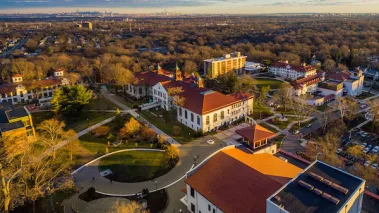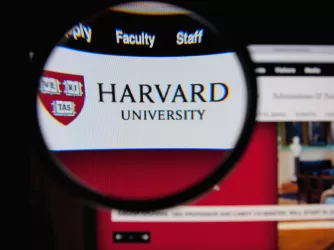Table of Contents
VICTORY: Montclair State clarifies resident assistants may make ‘negative’ comments to media

FIRE wrote to Montclair State University to explain that student employees at public institutions have the right to speak to the media as private citizens on matters of public concern. (Photo courtesy Montclair State University)
Following criticism from FIRE, Montclair State University removed a provision from its resident assistant job descriptions that prevented them from communicating to media outlets statements that “reflect negatively” on the university.
FIRE learned of the troubling policy from a recent editorial in The Montclarion student newspaper that questioned whether Montclair State is silencing resident assistants, citing a provision in RAs’ job descriptions: “RAs must refrain from making statements to media outlets that would reflect negatively on the Office of Residence Life or Montclair State University.”
This piqued FIRE’s interest, as we’ve seen similar unconstitutional provisions before.
Montclair State may not infringe student employees’ First Amendment rights.
FIRE wrote Montclair State on April 22 to explain that student employees at public institutions have the right to speak to the media as private citizens on matters of public concern. While Montclair State may properly regulate RA speech on behalf of the university and prevent RAs from sharing confidential information, Montclair State may not infringe student employees’ First Amendment rights.
As we wrote in our letter:
RAs must be able to speak about their personal experiences regarding matters of public concern, including personal experiences related to their work as RAs, even if that speech would lead some to see MSU in a negative light. The university’s interest in a positive public perception is not a valid basis to restrict students’ constitutionally protected expression.
To Montclair State’s credit, it promptly responded to FIRE to make clear it would not prevent RAs from making negative statements to the media. In the university’s April 29 response, Montclair State Associate University Counsel Maria Anderson affirmed student employees’ First Amendment rights and confirmed that the university had removed the offending provision from the RA job descriptions.
This victory comes quickly after two similar policy changes at the University of Wisconsin Oshkosh and the University of Northern Iowa. FIRE commends each of these universities for doing the right thing and ensuring their policies governing employees’ rights to speak to the media are speech-protective.
If you’re a faculty member, student, or student journalist facing policies that similarly infringe on your expressive rights, reach out to FIRE.
FIRE defends the rights of students and faculty members — no matter their views — at public and private universities and colleges in the United States. If you are a student or a faculty member facing investigation or punishment for your speech, submit your case to FIRE today. If you’re faculty member at a public college or university, call the Faculty Legal Defense Fund 24-hour hotline at 254-500-FLDF (3533). If you’re a student journalist with questions about your rights, what you can publish, and more, check out our Student Press Freedom Initiative (SPFI), which provides helpful resources to student journalists nationwide.
Recent Articles
FIRE’s award-winning Newsdesk covers the free speech news you need to stay informed.

‘I hate freedom of opinion’ meme leads to sentencing in German court

Revoking Harvard’s tax-exempt status will threaten all nonprofits

Grandpa’s advice for the new wave of American censors
